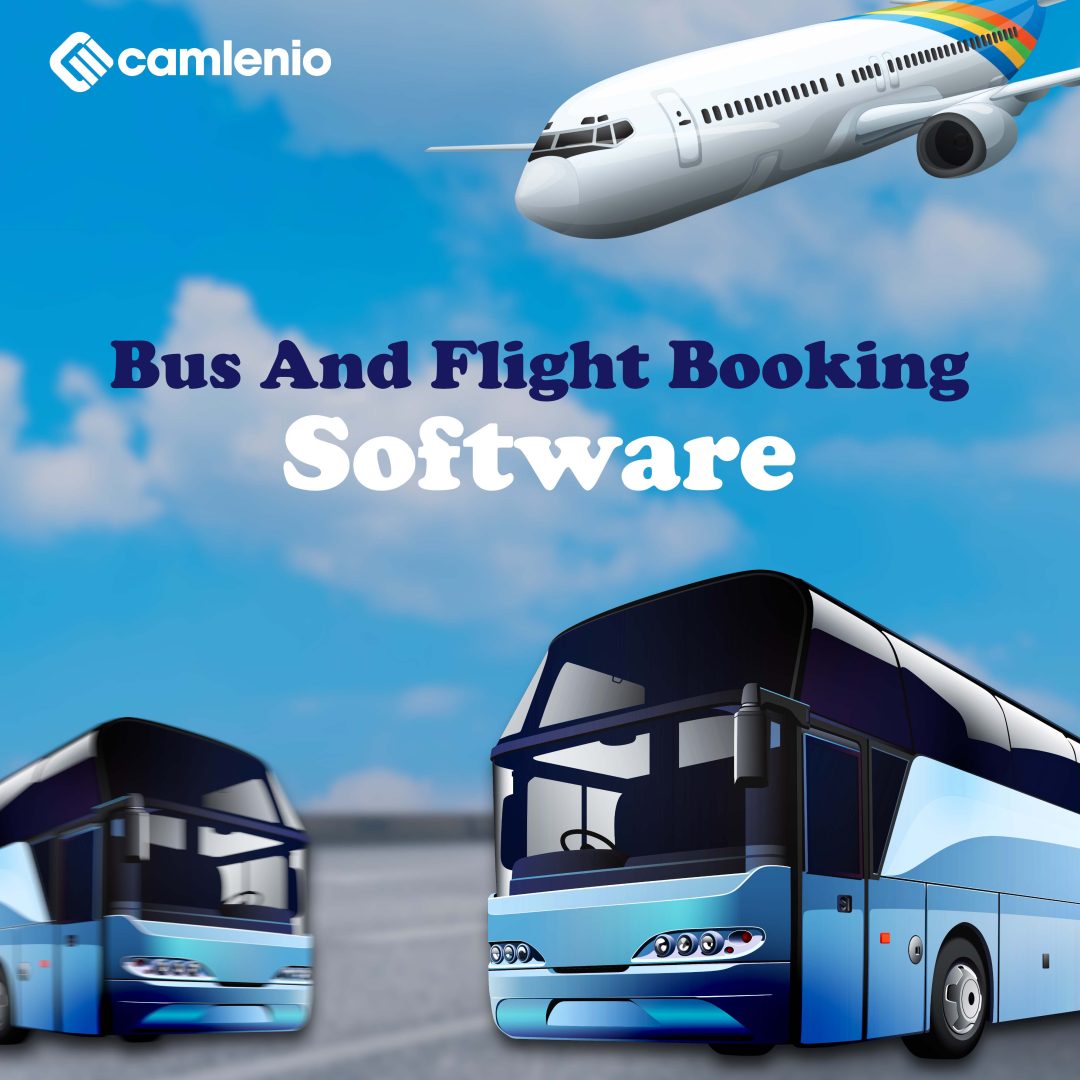In the ever-evolving world of travel and finance, finding the perfect travel booking software can feel like searching for a needle in a haystack. But fear not! We’re here to guide you through the maze and help you discover the best travel booking software in fintech 2024. Whether you’re a frequent traveler, a business owner, or just planning your next vacation, this guide will show you the top tools to make your booking process seamless and efficient.
Introduction
Travel booking has come a long way from the days of visiting travel agencies and making endless phone calls. In 2024, the intersection of travel and fintech has revolutionized how we plan and book our trips. But with so many options out there, how do you choose the best travel booking software in fintech? This article breaks down everything you need to know to make an informed decision.
What is Travel Booking Software?
Imagine having a personal assistant who can handle all your travel needs—booking flights, reserving hotels, arranging car rentals, and even securing travel insurance. Travel booking software does just that, but without the hefty salary. It’s an online platform that streamlines the travel booking process, making it easy for users to plan and manage their trips from start to finish.
Why Fintech Integration Matters
So, why is fintech integration a game-changer for travel booking software? Fintech, short for financial technology, enhances these platforms by providing secure, efficient, and flexible payment solutions. It’s like adding turbo boosters to your travel booking process. With fintech, you get faster transactions, more payment options, and heightened security—all crucial for a smooth travel experience.
Top Features for Best Travel Booking Software in Fintech
When choosing the best travel booking software in fintech, there are several key features to consider. Let’s dive into the most important ones:
- Ease of Use : The best travel booking software should be user-friendly. You shouldn’t need a degree in computer science to book a flight or a hotel room. Look for intuitive interfaces, simple navigation, and clear instructions. If it feels like a breeze to use, you’ve likely found a winner.
- Payment Flexibility: One of the biggest advantages of fintech integration is payment flexibility. Whether you prefer credit cards, digital wallets, or even cryptocurrencies, the best software will offer multiple payment options. This flexibility can save you time and reduce the hassle of dealing with currency conversions and transaction fees.
- Security: Security is paramount when dealing with online transactions. The best travel booking software will have robust security measures in place, such as encryption, secure payment gateways, and fraud detection systems. This ensures that your personal and financial information is protected.
- Customer Support: Ever tried to resolve an issue with no one to help? Frustrating, right? Top-notch customer support is essential. Look for software that offers 24/7 customer service, multiple contact options (like chat, email, and phone), and helpful resources like FAQs and tutorials.
- Customization: Everyone’s travel needs are different. The best software will allow for customization, letting you tailor your travel plans to your specific requirements. Whether it’s selecting your seat on the plane or choosing a specific type of accommodation, customization options can greatly enhance your travel experience.
Key features of travel booking software include:
- Flight and Hotel Booking: Allows users to search for and book flights, hotels, and other accommodations based on their preferences and budget.
- Itinerary Management: Helps users create and manage their travel itineraries, including booking confirmations, travel dates, and destinations.
- Payment Processing: Facilitates secure online payments for bookings using various payment methods, including credit/debit cards, net banking, and digital wallets.
- Real-time Availability: Provides up-to-date information on the availability of flights, hotels, and other travel services, ensuring accurate booking information.
- Integration with Travel Suppliers: Integrates with airlines, hotels, car rental companies, and other travel suppliers to access their inventory and offer a wide range of options to customers.
- Customer Relationship Management (CRM): Manages customer data, preferences, and interactions to provide personalized services and improve customer satisfaction.
- Reporting and Analytics: Generates reports and analyzes data to track bookings, revenue, and other key metrics, helping businesses make informed decisions.
- Mobile Accessibility: Offers mobile-friendly interfaces or dedicated mobile apps to allow users to book and manage their travel plans on the go.
Travel booking software in fintech typically includes the following services:
- Flight Booking Software Development: This service involves creating software that allows users to search for flights based on various criteria such as destination, date, airline preferences, and price range. It also includes features for booking flights, managing reservations, and providing users with relevant flight information.
- Bus Booking Software Development: This service focuses on developing software that enables users to search for bus routes, check bus schedules, book bus tickets, and manage their bus reservations. It may also include features for tracking bus locations in real-time and providing updates to users.
- Hotel Booking Software Development: This service involves developing software that facilitates hotel reservations. It includes features for searching for hotels based on criteria such as location, check-in/out dates, price range, and amenities. Users can also view hotel details, make reservations, and manage their bookings through the software.
Read More : https://camlenio.com/blogs/bus-and-flight-booking-software/
Flight booking software in fintech services typically include a range of features to make the booking process seamless and efficient. Some common features include:
- Search and Booking: Users can search for flights based on various criteria such as destination, dates, number of passengers, etc. They can then book flights directly through the software.
- Seat Selection: Users can select their preferred seats on the flight, if available, during the booking process.
- Payment Processing: Secure payment processing is essential for users to pay for their bookings. Integration with various payment gateways allows for smooth transactions.
- Integration with Airlines: Integration with airline systems allows for real-time availability and pricing information, ensuring that users get the most up-to-date information.
- Flight Management: Users can manage their bookings, including making changes or cancellations, through the software.
Hotel booking software in fintech typically offers a range of features to streamline the booking process and enhance the overall experience for both hotels and guests. Here are some common features:
- Online Booking: Enables guests to book rooms directly through the hotel’s website or a third-party platform.
- Room Availability: Displays real-time room availability based on dates and other criteria.
- Reservation Management: Allows hotels to manage reservations, including modifying, canceling, and confirming bookings.
- Payment Processing: Integrates with payment gateways to securely process payments for bookings.
- Inventory Management: Helps hotels manage room inventory and pricing based on demand and other factors.
Bus booking software in fintech services typically offer a range of features to make the booking process efficient and user-friendly. Some common features include:
- Online Booking: Allow customers to book bus tickets online through a user-friendly interface.
- Seat Selection: Enable customers to select their preferred seats from an interactive seat map.
- Multiple Payment Options: Support various payment methods such as credit/debit cards, net banking, and mobile wallets.
- Real-time Availability: Display real-time availability of buses, seats, and schedules.
- Route Planning: Provide information on bus routes, stops, and timings to help customers plan their journey.
- Ticket Cancellation and Refund: Allow customers to cancel their tickets and process refunds according to the cancellation policy.
Conclusion
Choosing the best travel booking software in fintech 2024 doesn’t have to be a daunting task. By considering key features like ease of use, payment flexibility, security, customer support, and customization, you can find a platform that meets your needs and enhances your travel experience. With leading software options like Software A, Software B, and Software C, you’re well-equipped to make informed decisions and enjoy a seamless booking process.
FAQs
1. What is travel booking software?
Travel booking software is an online platform that allows users to plan, book, and manage their travel arrangements, including flights, hotels, car rentals, and more.
2. Why is fintech integration important in travel booking software?
Fintech integration enhances travel booking software by providing secure, efficient, and flexible payment solutions, making transactions faster and safer.
3. What features should I look for in travel booking software?
Key features to look for include ease of use, payment flexibility, security, customer support, and customization options.
4. How do I know if travel booking software is secure?
Look for software with robust security measures, such as encryption, secure payment gateways, and fraud detection systems, to ensure your personal and financial information is protected.
5. What are some future trends in travel booking software?
Future trends include the use of AI and machine learning for personalized recommendations, blockchain technology for enhanced security, a mobile-first approach, sustainability features, and the incorporation of AR and VR for immersive experiences.

